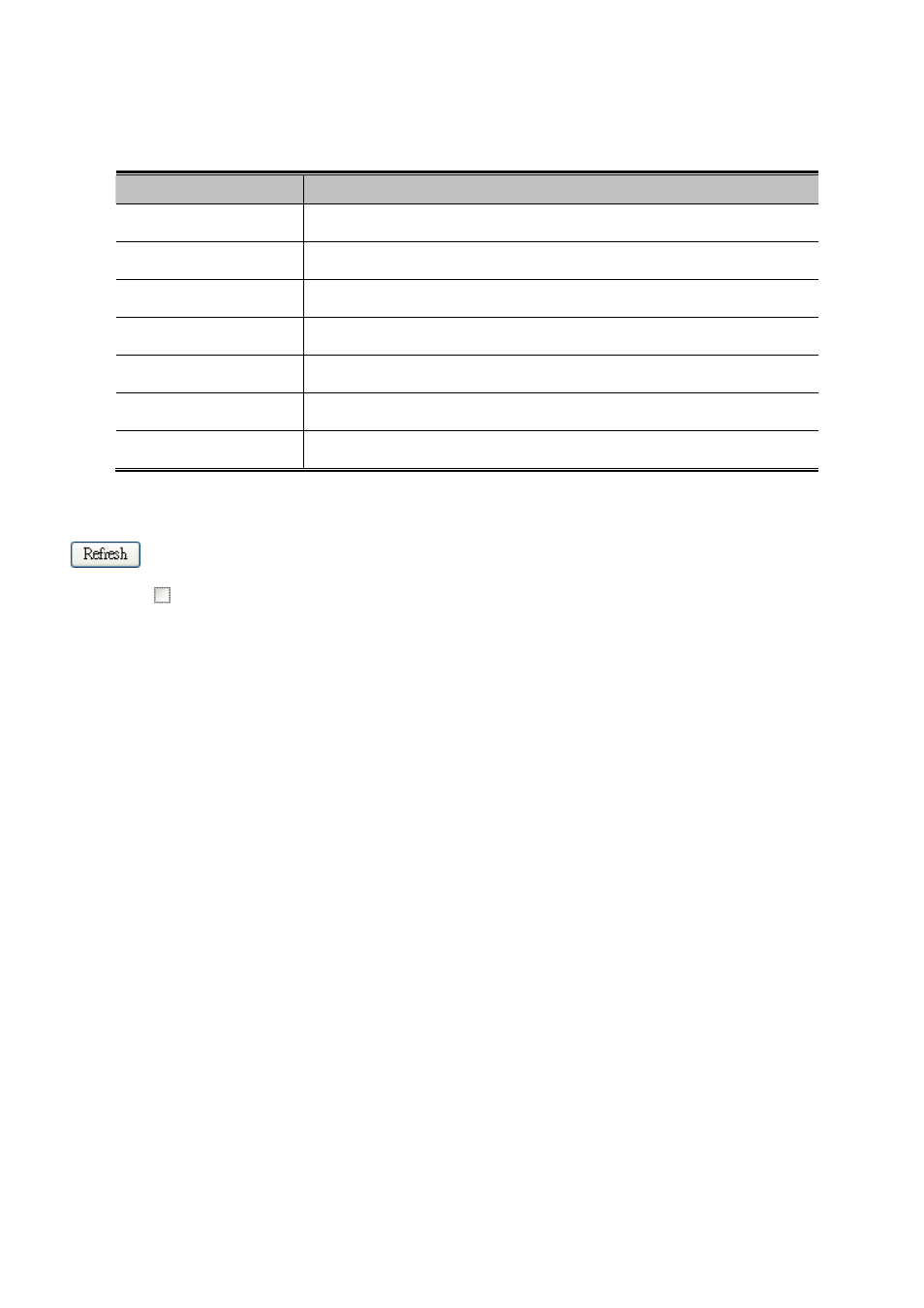17 sflow – PLANET XGSW-28040 User Manual
Page 315

User’s Manual of XGSW-28040
The page includes the following fields:
Object
Description
Port
The switch port number of the logical port.
Action
The currently configured port action.
Transmit
The currently configured port transmit mode.
Loops
The number of loops detected on this port.
Status
The current loop protection status of the port.
Loop
Whether a loop is currently detected on the port.
Time of Last Loop
The time of the last loop event detected.
Buttons
: Click to refresh the page immediately.
Auto-refresh
:
Check this box to enable an automatic refresh of the page at regular intervals.
4.17 sFlow
The sFlow (RFC 3176) is a protocol based on standard network export and used on monitoring the network traffic information
developed by the InMon Company. The monitored switch or router sends date to the client analyzer through its main operations
such as sampling and statistic, then the analyzer will analyze according to the user requirements so to monitor the network.
A sFlow monitor system includes: sFlow proxy, central data collector and sFlow analyzer. The sFlow proxy collects data from the
switch using sampling technology. The sFlow collector is for formatting the sample data statistic which is to be forwarded to the
sFlow analyzer which will analyze the sample data and perform corresponding measure according to the result. Our switch here
acts as the proxy and central data collector in the sFlow system. We have achieved data sampling and statistic targeting
physical port.
Our data sample includes the IPv4 and IPv6 packets. Extensions of other types are not supported so far. As for non IPv4 and
IPv6 packet, the unify HEADER mode will be adopted following the requirements in RFC3176, copying the head information of
the packet based on analyzing the type of its protocol.
The latest sFlow protocol presented by InMon Company is the version 5. Since it is the version 4 which is realized in the
RFC3176, version conflict might exist in some case such as the structure and the packet format. This is because the version 5
has not become the official protocol, so, in order to be compatible with current applications, we will continue to follow the
RFC3176.
315